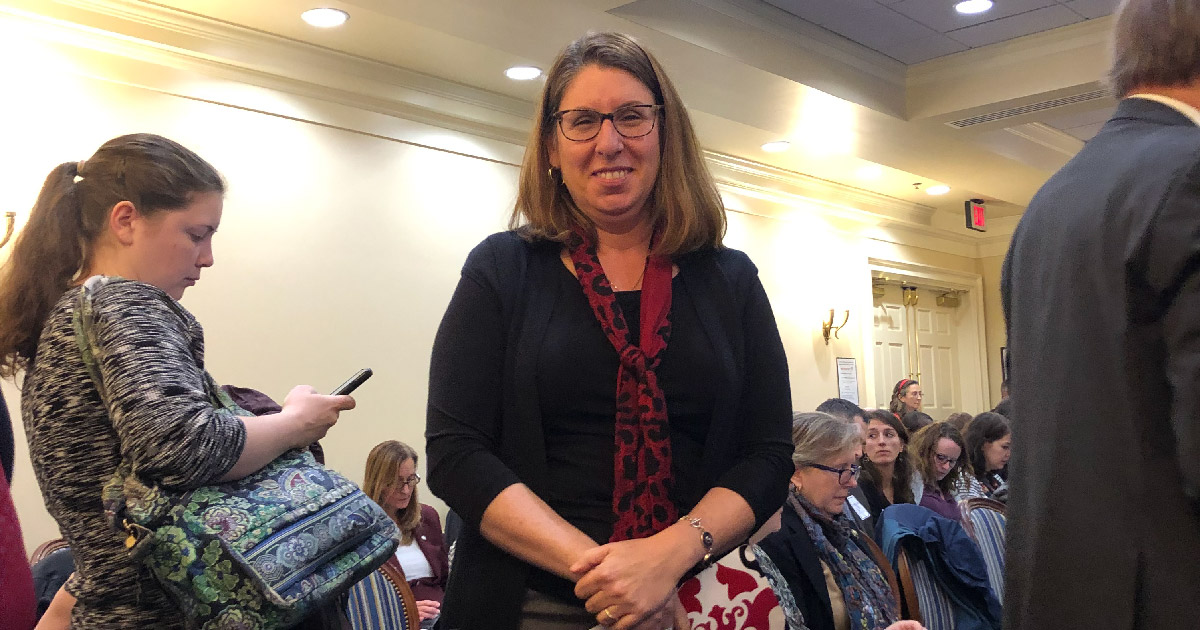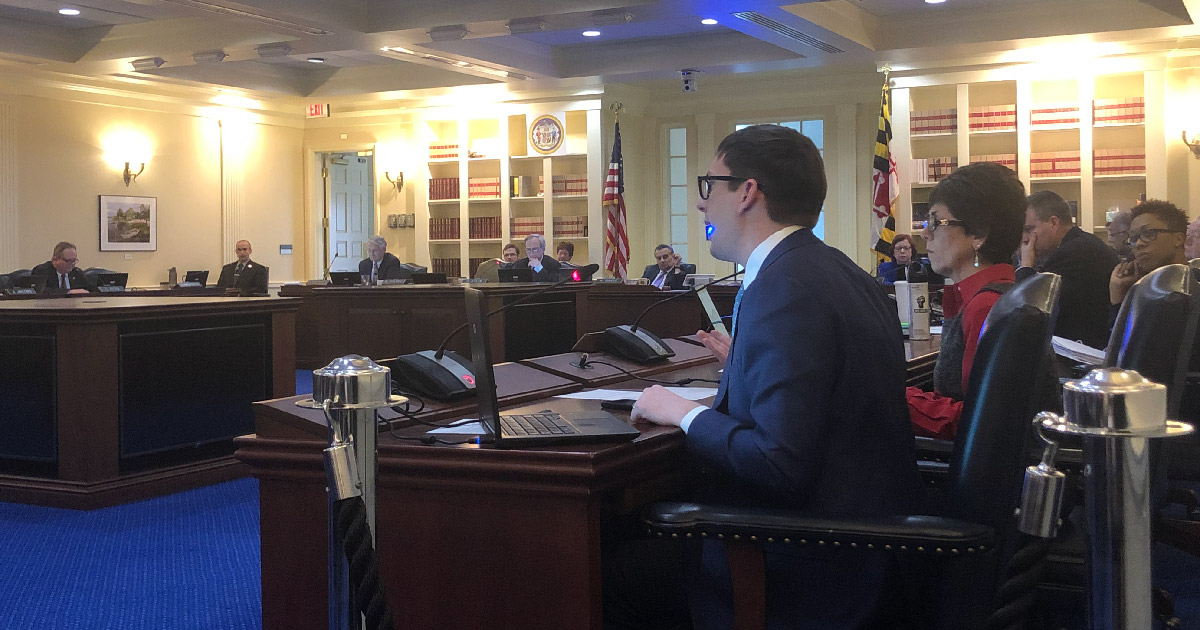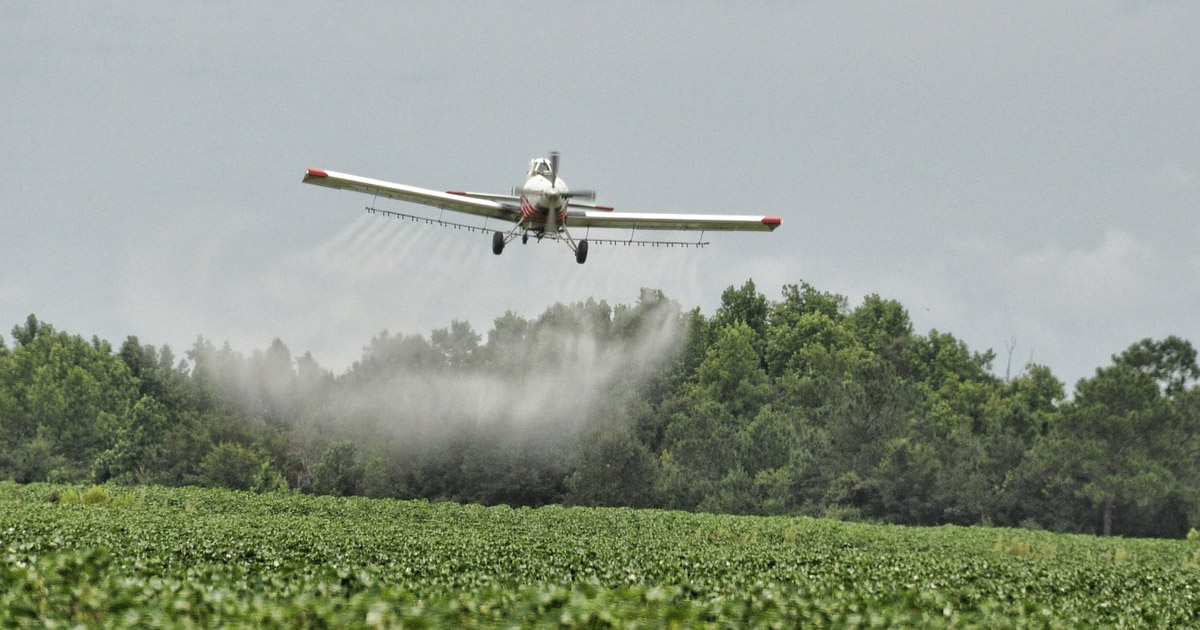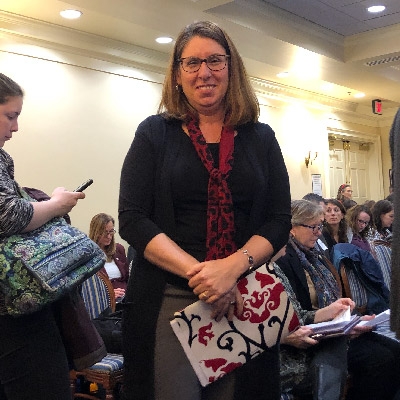MCN Stands Up for a Ban on Chlorpyrifos in Maryland

[MCN's Amy K. Liebman prepares to testify in Annapolis in support of a ban on chlorpyrifos]
By Sofia Carrasco
Yesterday, Migrant Clinicians Network’s own Amy K. Liebman testified in front of Maryland’s House Environment and Transportation Committee in support of HB 275 for a Maryland-wide ban on the use of chlorpyrifos, a dangerous neurotoxic pesticide.
Liebman, who directs MCN’s Environmental and Occupational health division, spoke on behalf of MCN and for Farmworker Justice, a nonprofit organization that seeks to improve the living and working conditions of farmworkers.
There were over 50 people in attendance of the hearing, both for and against the ban, and there was standing room only.
Liebman was joined by a number of panelists including Devon Payne-Sturges, DrPH, an environmental health professor at University of Maryland; Michael Ichniowski, MD and Lorne Garrettson, MD, both pediatricians; and Tyler Smith, MPH, an epidemiologist and risk assessor with the nonprofit Earthjustice. The panelists’ testimonies were also heard by a standing-room-only crowd of roughly 50, a mix of supporters and detractors to the proposed ban.

Chlorpyrifos is an extremely dangerous pesticide that was banned in residential areas in 2000 by the EPA because of evidence that it causes neurodevelopmental risks to young children. Exposure to chlorpyrifos can occur through food contamination, water contamination, airborne drift, and even contact with their parents’ work clothes.
But one of the most dire threats that exposure to chlorpyrifos poses is to pregnant farmworkers and the permanent damage chlorpyrifos may cause to fetal brain development, which can lead to reduced IQ, reduced memory function, and attention deficit disorders.
“In addition to children, pregnant farmworker women are a most immediate concern,” Liebman testified. “It is impossible to reduce the exposure level below the threshold for damaging the fetus.”
The EPA has allowed the use of chlorpyrifos to continue in agriculture, exposing not only children and pregnant women, but also every worker who comes into contact with this pesticide. Personal protective equipment is not 100 percent effective. In its most recent Human Health Risk Assessment, EPA also found that unsafe exposures to farmworkers continue to occur on average 18 days after applications.
“The research shows that farmworkers have levels of urinary chlorpyrifos metabolites ten times higher than the US population as a whole,” Liebman said. “Acute poisonings still occur.”

Chlorpyrifos is an organophosphate pesticide and overexposure can lead to acute pesticide poisoning that can cause nausea, vomiting, and dizziness. In some instances, it can lead to convulsions, respiratory paralysis, and in extreme cases, death. It is one of the main pesticides linked to poisonings.
In its 2016 risk assessment of chlorpyrifos, the EPA found unsafe levels of the pesticide in the air at schools, homes, and communities in agricultural areas. It also reported its pesticide drift reaches unsafe levels at 300 feet from a sprayed field’s edge.
Chlorpyrifos is sprayed on a wide variety of crops including corn, wheat, and soybeans, and fruits such as strawberries, oranges, and apples.
While some opponents, including farm owners and golf course owners, insisted that chlorpyrifos is an important part of their operations, other farm owners voiced their support for the ban, submitting a letter of support from 46 conventional and organic growers from across Maryland.
“We have an important opportunity in Maryland to help protect farmworker children and other kids living in rural areas,” Liebman urged. “We have the chance to ensure that farmers and farmworkers alike do not get poisoned as they work tirelessly to put food on our table. MCN and Farmworker Justice urge the committee to issue a favorable report on HB 275 to protect Maryland’s farmer and farmworker families.”
Like what you see? Amplify our collective voice with a contribution.
Got some good news to share? Contact us on our social media pages above.
Return to the main blog page or sign up for blog updates here.
- Log in to post comments

